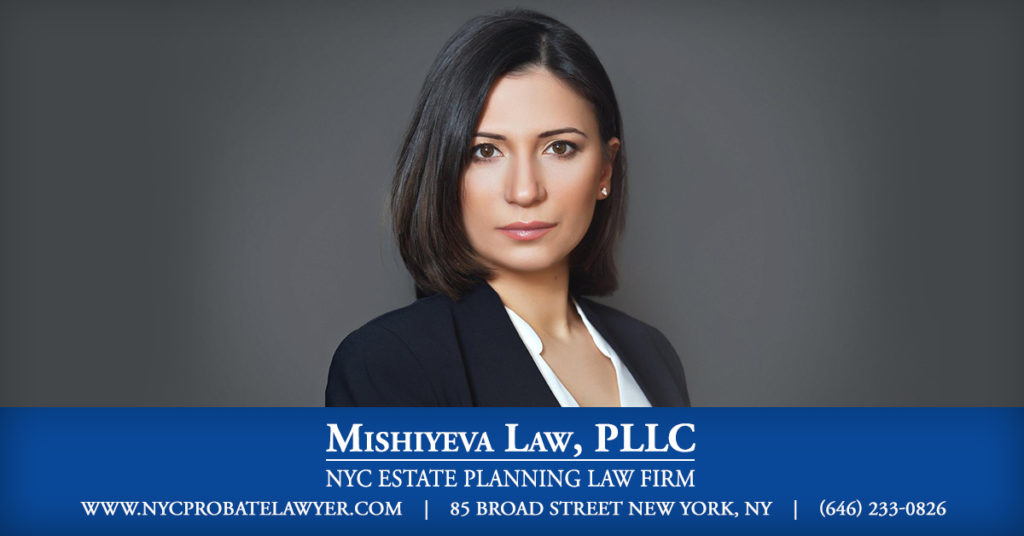3 Things Not To Do As An Executor
 Whether your motive is to help the heirs of a deceased receive their inheritance, collect executor commissions, or to simply help yourself receive your bequest, executors are increasingly jeopardizing their fiduciary role by not following simple rules. While most NY estate lawyers completely guide their clients through the entire probate or administration (no will) process, some lawyers fail to make an effort to ensure their clients follow lawful procedure to reduce conflict whenever possible. The following are three things you should NOT do if you have been officially appointed by the New York Surrogate’s Court as the executor or administrator of an estate:
Whether your motive is to help the heirs of a deceased receive their inheritance, collect executor commissions, or to simply help yourself receive your bequest, executors are increasingly jeopardizing their fiduciary role by not following simple rules. While most NY estate lawyers completely guide their clients through the entire probate or administration (no will) process, some lawyers fail to make an effort to ensure their clients follow lawful procedure to reduce conflict whenever possible. The following are three things you should NOT do if you have been officially appointed by the New York Surrogate’s Court as the executor or administrator of an estate:
Do Not Remove Property Belonging to the Estate
Once someone dies, an estate is automatically created. All items, whether personal or real property, at that time of death belong to the estate of the decedent. At this time, no items should be disposed, donated, sold, or gifted to anyone. Although an item may seem of no value at the time, it can create serious conflict down the road if it cannot be accounted for. All tangibles should remain in status quo until all beneficiaries receive their inheritance and sign a form releasing the executor from any personal liability. If real estate belonging to an estate must be sold, the executor must inventory all items and place them into storage. In the alternative, the executor may send the inventory list to the heirs to see if anyone makes a claim to the items. Unclaimed items may then be sold or donated. This paragraph assumes that the decedent died without a will or that the will does not name a beneficiary for the personal property.
Do Not Deposit Estate Funds into a Personal Bank Account
One of the most important things you should do as an executor or administrator of an estate is open an estate bank account to hold any monies belonging to the estate. Sale proceeds from selling a home or rents collected from estate property must be deposited into an estate bank account. Additionally, if a decedent died before his or her lawsuit was favorably settled, the settlement proceeds must be deposited into an estate bank account. If the decedent had any stocks or bank accounts, it is always advisable to transfer the accounts into an estate account as soon as possible. Unless there is a compelling reason why the executor is unable to open an estate bank account, there is no legitimate reason why money belong to an estate should be held anywhere else other than an estate account. Significantly, estate money has no place in an attorney’s escrow account.
Do Not Use Estate Bank Account as a Personal Bank Account
Although this paragraph may read like common sense, it is astonishing how many executors take advantage of the estate bank account and use it as they would their own personal bank account. The main purpose of an estate bank account is to safeguard all funds belonging to an estate, which will ultimately be distributed to the beneficiaries. The funds should be used only for specific expenses such as paying the monthly maintenance charges on a co-op or condo, mortgage payments on an encumbered real property, upkeep expenses, settling claims with creditors and so forth. The estate bank account should not be used personal expenses. Under no circumstances, should you make cash withdrawals or use the funds to pay your own bills. When all beneficiaries consent to their inheritance and all expenses of the estate, you may issue checks to yourself and to the heirs from the estate account. Otherwise, be very careful with how you allocate estate money and always keep a paper trail.
Contact Us
If you are a victim of an executor’s wrongdoing or an executor who needs assistance administering an estate in New York State, contact us at (646) 233-0826. Do not wait until it is too late. If an estate has been opened in Manhattan, Brooklyn, Bronx, Queens, Staten Island or Long Island, we can help.
Learn More About Estate Planning & Probate
What does a NY Estate lawyer ?
Estate Planning For Your Digital Legacy.
Read This Before You Get a Will!
Myths and Facts about Probate Administration.
Attorney Advertising. This page is designed to provide general information. It is not intended to be legal advice. It can not and should not be substituted for proper legal representation. You should consult an attorney for legal advice regarding your rights as every case is unique and requires in depth analysis and preparation. Do not submit confidential information through this website. Contact initiated through this website does not create an attorney-client relationship. We make no warranty or guarantee of the accuracy or reliability of information contained herein.